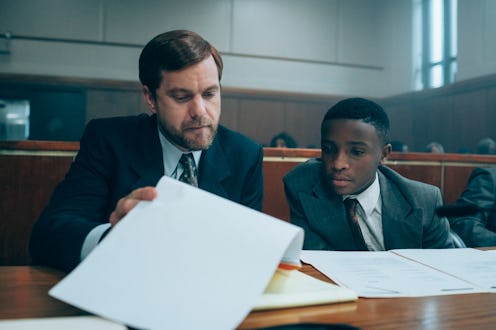Entertainment
This Is The Man Who Actually Committed The Central Park Jogger Rape

Ava DuVernay’s When They See Us, a four-part Netflix special that recounts the story of the Central Park Five case, will surely capture everyone's attention when it airs on May 31. As much as it is about the five teenage boys who were wrongfully accused of assault and rape, it also introduces Matias Reyes, who eventually committed and was charged with the crime.
On the night of April 19, 1989, according to Esquire, teens Kevin Richardson, Raymond Santana, Antron McCray, Yusef Salam, and Korey Wise, were reportedly in Central Park around the same time that Trisha Meili, a then-28-year-old banker, was beaten, raped, and left for dead after she went out for a jog. As reported by Esquire, all five boys confessed to the crime after “hours of [allegedly] deceptive police interrogation.” There was no DNA evidence of the boys present at the crime scene, nor could they describe the victim or what had happened. But no one looked into this — instead, in 1990, per AMNew York, all of the boys were sentenced to prison terms ranging from six to 13 years.
Flash forward to 2002 — Matias Reyes, who was, according to the New York Daily News, serving a lifetime prison sentence for the rape and murder of a pregnant woman, as well as the rape of three other women, confessed that was the one who had committed the crime. “At first, I was afraid, but at the end of the day I felt it was definitely the right thing to do,” Reyes said told the newspaper at the time.
As reported by the New York Daily News, both police officers and prosecutors alleged that Reyes had made up the confession in order to gain favor with Wise, who was serving time with Reyes at the Auburn Correctional Facility in upstate New York, but Reyes says it’s not true. “A lot of people have asked, ‘Why didn’t you say something back then?’” Reyes told investigators, per the New York Daily News. “I don’t know. Why didn’t I saw something to [Wise]? I don’t know…I wanted so bad to approach him and to speak to him and to tell him that it was me that did the crime he’s in jail for, that if he could forgive me.”
Because Reyes confessed and insisted that he acted alone, per the New York Times, Justice Charles J. Tejada vacated the sentences of the Central Park Five. In 2003, the Central Park Five sued the City of New York, per ABCNews, and in 2013, the group was awarded $41 million to split between them. The city maintains that prosecutors and the police did nothing wrong, and they did not admit fault.
Because Reyes was already serving a life sentence at the time of his confession, he is still in prison, and he will remain so for the rest of his life. The rest of the Central Park Five have attempted to move on, and DuVernay’s new look at their case highlights the gross inequalities that people of color face in the American justice system.